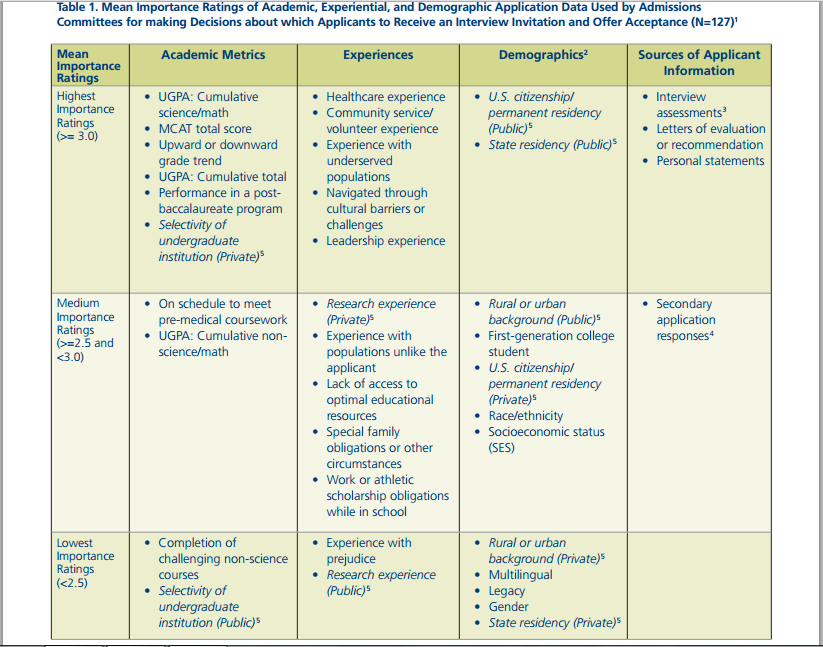- Joined
- Apr 6, 2014
- Messages
- 14,146
- Reaction score
- 22,778
Hello everybody, it's been a while since I stirred up a good ruckus so I thought I'd share this...

(for non crap quality see https://www.aamc.org/students/download/267622/data/mcatstudentselectionguide.pdf page 7)
What's up with the points of disagreement between what med schools say is important vs SDN? For example...

(for non crap quality see https://www.aamc.org/students/download/267622/data/mcatstudentselectionguide.pdf page 7)
What's up with the points of disagreement between what med schools say is important vs SDN? For example...
- The SDN consensus is usually that med schools don't care where you went to undergrad, they just care that you got a solid GPA...but for private schools selectivity of undergrad is rated highest importance up there with GPA and MCAT
- I believe I've seen a few adcoms on here state that it's the exception rather than the norm for letters of rec and personal statements to really much help or hinder an applicant. Isn't this at odds with the "highest importance" rating, since other things up there (like again GPA or MCAT) do very much help and hinder applicants?
- People frequently say that legacy goes a long way (often as a comparison to URM) towards lowering the thresholds required of applicants. Are the med schools straight up lying in the survey saying that legacy is of low importance?

